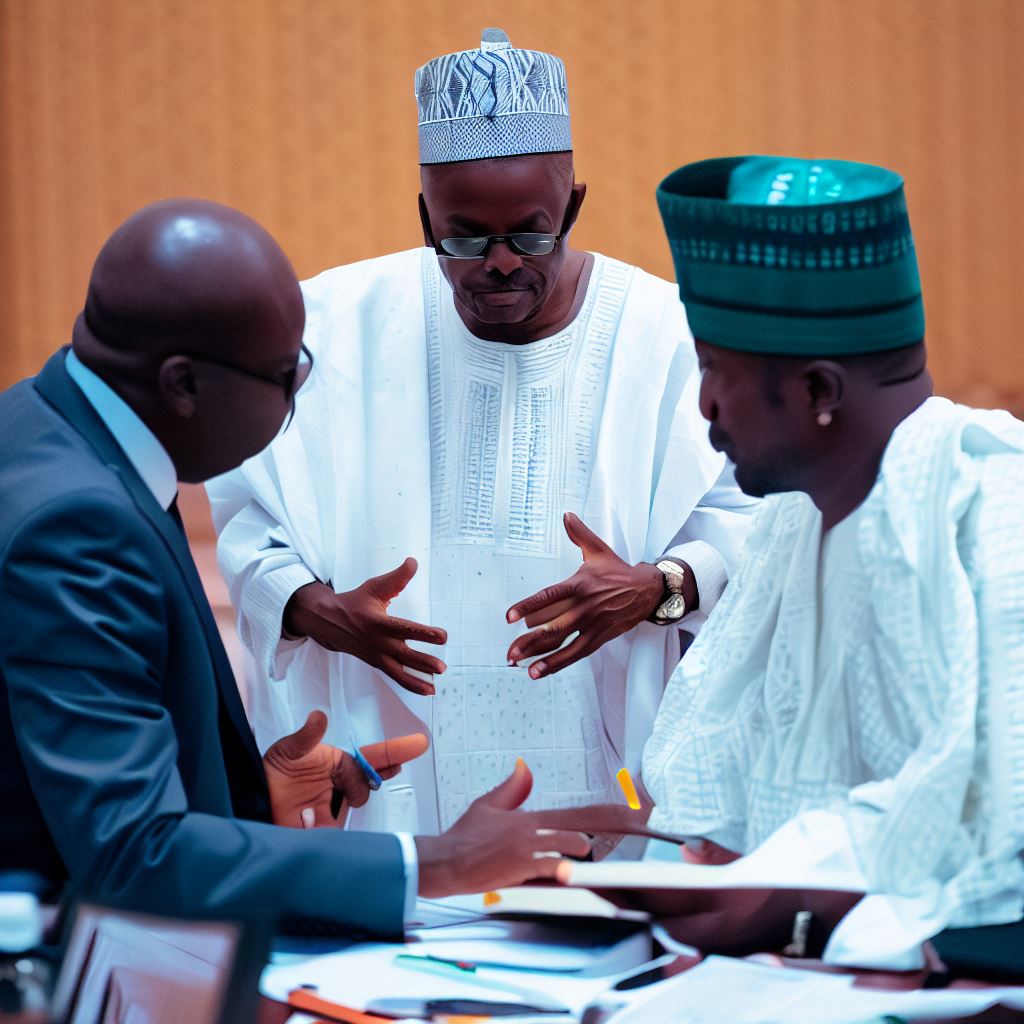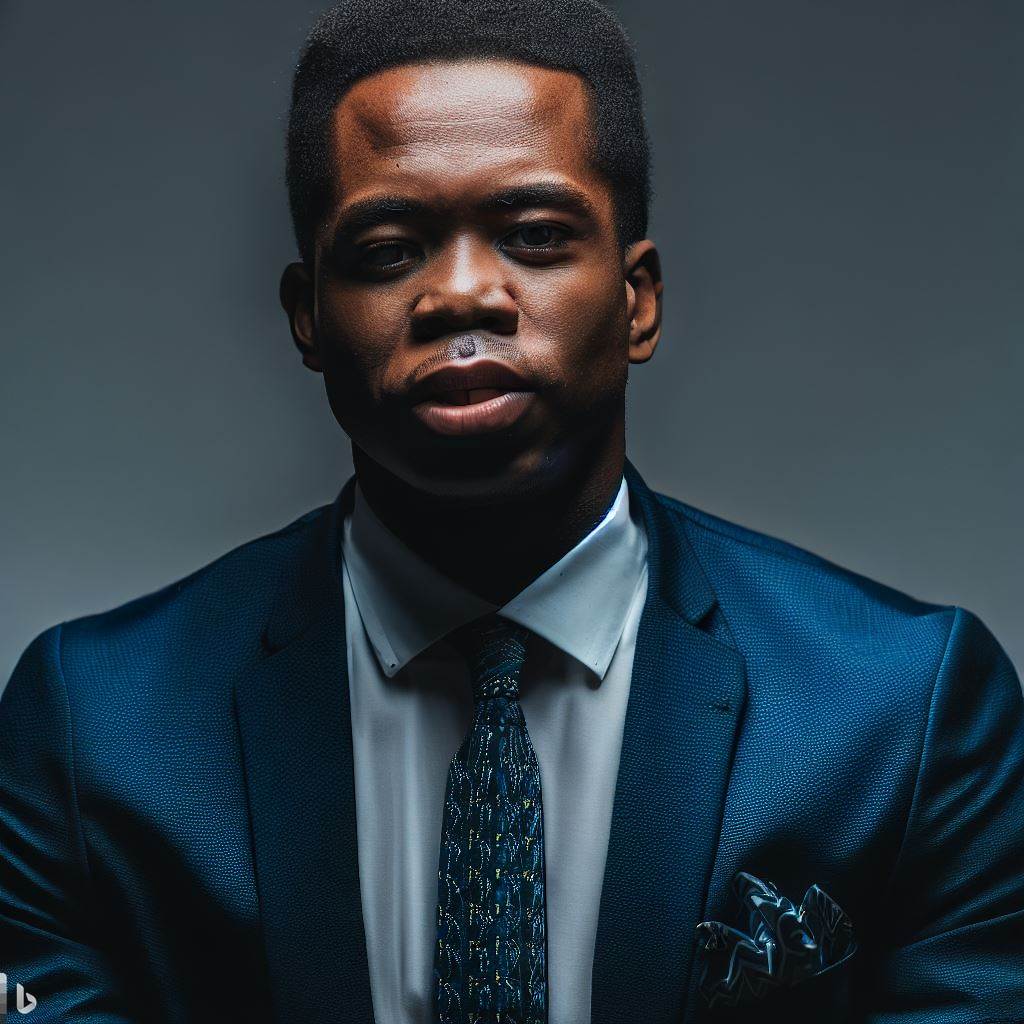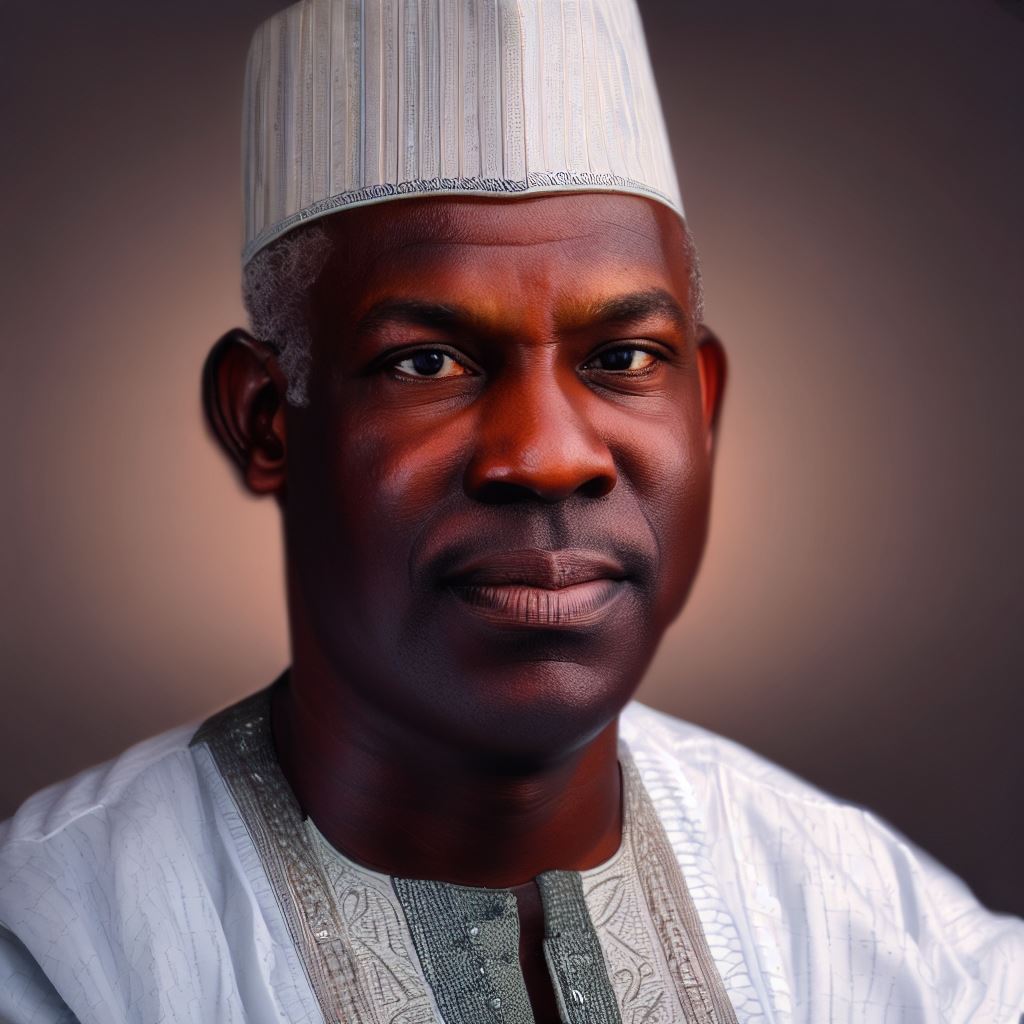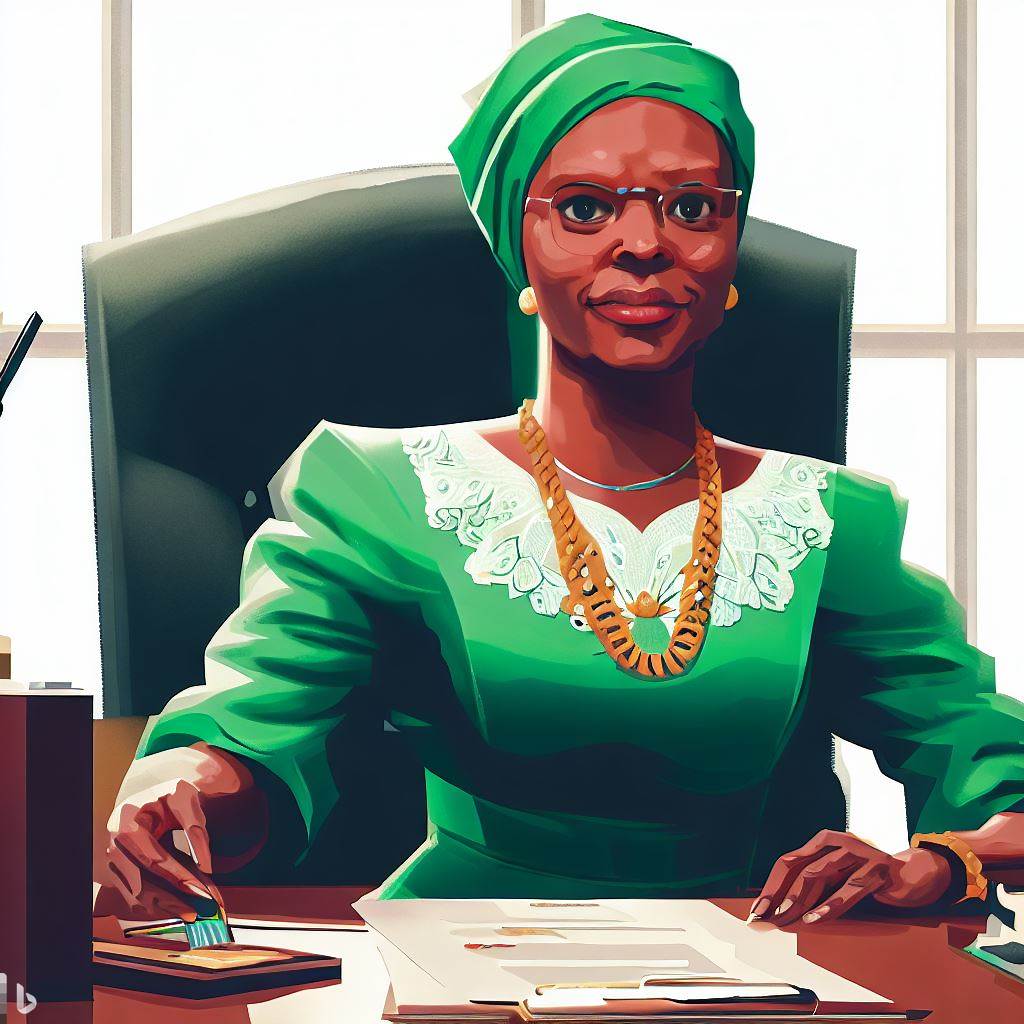Introduction
Nigerian politics is a complex system that has greatly influenced the country’s development.
Traditional leaders play a crucial role in Nigerian society, both historically and presently.
Historical role of traditional leaders in Nigerian politics
In examining the influence of traditional leaders in Nigerian politics, it is important to understand the historical context in which this influence developed.
The role of traditional leaders has evolved over time, particularly during the pre-colonial and colonial eras.
Pre-colonial era
During the pre-colonial era, traditional rulers held significant political and administrative positions.
They were respected figures within their communities and held decision-making powers that greatly influenced governance.
These rulers played a crucial role in maintaining law and order, resolving conflicts, and representing the interests of their people.
In many instances, traditional rulers acted as intermediaries between their communities and larger political entities, such as regional kingdoms or empires.
They had the authority to levy taxes, enforce laws, and provide guidance on various social and economic matters.
Their influence extended beyond their immediate communities, as they were often involved in diplomacy and trade relations with neighboring regions.
Colonial era
However, with the arrival of colonial powers in Nigeria, the authority of traditional leaders started to decline.
The British colonial administration sought to exert control over the Nigerian population, and one of their strategies was the introduction of the indirect rule system.
Under this system, colonial administrators relied on traditional rulers to manage local affairs on their behalf.
While traditional rulers maintained some level of autonomy, their power was significantly curtailed by colonial oversight.
The collaboration between traditional leaders and colonial administrators became a defining feature of Nigerian politics during the colonial era.
Traditional rulers were expected to enforce British laws and policies, collect taxes, and ensure the smooth running of local governance. In return, they were granted certain privileges and recognition by the colonial administration.
This arrangement allowed colonial powers to govern Nigeria with minimal direct intervention.
However, it is important to note that traditional leaders were not universally complicit in supporting colonial rule. Some resisted British influence and maintained a level of autonomy within their communities.
These leaders continued to advocate for the interests of their people and play an important role in the political landscape.
In summary, the historical role of traditional leaders in Nigerian politics has been shaped by both pre-colonial and colonial influences.
During the pre-colonial era, traditional rulers held significant authority and influence over governance.
However, the arrival of colonial powers led to the erosion of their power, as the indirect rule system was implemented.
Despite this, traditional leaders collaborated with colonial administrators and continued to exert some influence within their communities.
Understanding this historical background is crucial in analyzing the current role and influence of traditional leaders in Nigerian politics.
Read: Elections in Nigeria: The Role of Politicians Explained
Traditional leaders in modern Nigerian politics
Traditional leaders in Nigeria have gained constitutional recognition in the country’s political landscape.
They are not confined to historical or cultural roles alone, but also play an active part in shaping the political discourse in the nation.
Constitutional recognition of traditional leaders
Nigerian traditional leaders have become indispensable players in modern politics, thanks to the constitutional recognition they receive.
This recognition enables them to actively participate and contribute to the democratic process, as they fulfill various roles and responsibilities outlined in the Constitution.
The inclusion of traditional rulers in the 1999 Constitution signifies the acknowledgement of their intrinsic value in Nigerian governance.
The Constitution recognizes the significant role traditional leaders play in upholding cultural heritage and facilitating societal cohesion.
Traditional rulers are bestowed with roles such as being custodians of customs and traditions, maintaining social order, and promoting the welfare of their subjects.
However, their influence extends beyond these traditional functions, reaching into the political realm. Endorsement and support from traditional leaders during elections hold immense weight.
As respected figures within their communities, their backing can significantly sway public opinion and influence voting patterns.
Political influence of traditional leaders
Traditional rulers also possess the unique ability to mobilize their communities effectively.
By utilizing their network and influence, they can organize political rallies and campaigns on behalf of candidates they support.
This enables politicians to tap into the grassroots level, reaching a broader audience and garnering support.
In addition to their integral role in elections, traditional leaders also serve as critical mediators in resolving conflicts within their communities.
Their wisdom, knowledge, and experience are highly regarded, making them effective arbiters in settling disputes and maintaining peace.
The mediation and conflict resolution capabilities of traditional leaders contribute to political stability in Nigeria.
In a country with diverse ethnic, religious, and cultural groups, the role of traditional leaders in fostering peace and harmony cannot be overemphasized.
In the end, traditional leaders in Nigerian politics have come a long way from being purely ceremonial figures.
With constitutional recognition and the delineation of their roles and functions in the 1999 Constitution, they have gained a substantial foothold in the political landscape.
Their political influence, through endorsement, mobilization, and conflict resolution, has become an integral part of contemporary Nigerian politics.
Read: Ethics and Integrity: Core Values of Nigerian Politicians
Challenges faced by traditional leaders in exerting political influence
Growing criticisms and calls for abolition of traditional institutions
- Traditional leaders face increasing criticism and demands for the dismantling of their roles in Nigerian politics.
- Some argue that traditional leaders are outdated and hinder the development of a more democratic society.
- Critics claim that traditional leaders have too much power and influence without being held accountable for their actions.
- These challenges pose a significant threat to the authority and political influence of traditional leaders.
Public perception of corruption and abuse of power among traditional leaders
- Traditional leaders in Nigeria often face accusations of corruption and misuse of their authority.
- The perception of traditional leaders as corrupt hinders their ability to exert political influence effectively.
- The public’s lack of trust in traditional leaders creates obstacles for them in garnering support and gaining political clout.
- Traditional leaders must address these concerns and work towards building a reputation of transparency and integrity.
Interference from state and federal governments
- Traditional leaders encounter interference and constraints from state and federal governments in their political activities.
- Governments often seek to control or limit the influence of traditional leaders to maintain their own authority.
- This interference restricts the ability of traditional leaders to fully exert their political power and fulfill their roles.
- Traditional leaders must navigate these challenges and find ways to assert their influence despite government interference.
Emerging divide between traditional leaders and younger generations
- A generation gap has emerged between traditional leaders and the younger population of Nigeria.
- Younger generations often do not view traditional leaders as relevant or representative of their interests.
- The divide between traditional leaders and younger generations hampers the ability of traditional leaders to exert political influence.
- Traditional leaders must adapt their approach and engage with the younger population to maintain political relevance.
In general, traditional leaders in Nigerian politics face numerous challenges that impede their ability to exert political influence.
These challenges include growing criticisms and calls for the abolition of traditional institutions, public perception of corruption and abuse of power among traditional leaders, interference from state and federal governments, and an emerging divide between traditional leaders and younger generations.
Overcoming these challenges requires traditional leaders to address concerns of corruption, assert their authority in the face of government interference, and bridge the gap with the younger population.
By doing so, traditional leaders can maintain their political influence and play a meaningful role in Nigerian politics.
Read: Women in Nigerian Politics: Breaking Barriers
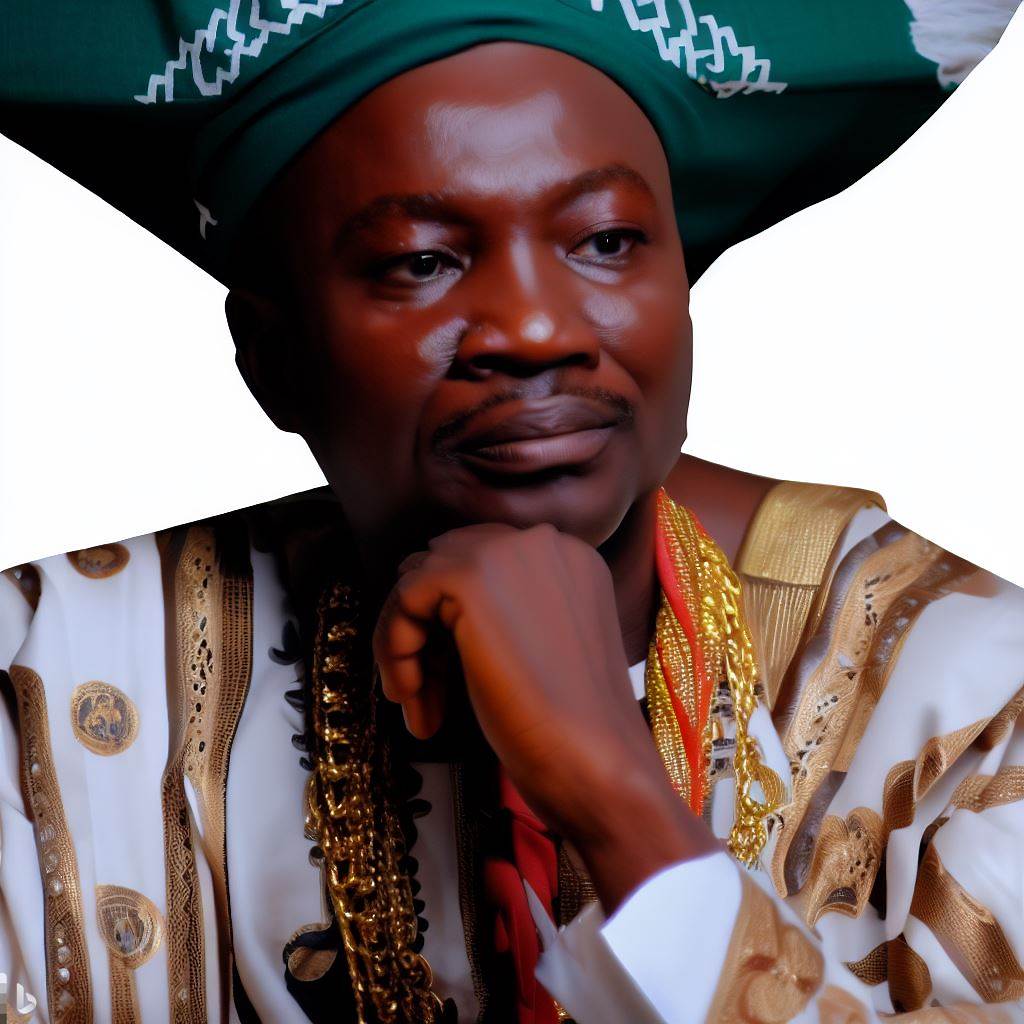
Current examples of traditional leaders in Nigerian politics
Traditional leaders hold significant influence and play an important role in Nigerian politics.
These revered figures, such as the Ooni of Ife and the Emir of Kano, have demonstrated their impact through their political engagements, contributions to community development, and promotion of national cohesion.
The Ooni of Ife
The Ooni of Ife, Oba Adeyeye Ogunwusi, has actively participated in Nigerian politics by engaging with political leaders, advising them, and contributing to policy discussions.
He recognizes the importance of traditional institutions in the political landscape and utilizes his position to advocate for the interests of his people.
His influence extends beyond his immediate community, as he seeks to bridge ethnic and cultural divides and unite Nigerians.
Furthermore, Oba Adeyeye Ogunwusi has been instrumental in promoting community development and national cohesion.
He has initiated and supported various projects aimed at improving the socio-economic conditions of his people.
These initiatives include infrastructural development, youth empowerment programs, and initiatives to promote cultural heritage.
Through these efforts, the Ooni of Ife has fostered a sense of unity and pride among Nigerians, reinforcing the significance of traditional leadership in the country’s political landscape.
The Emir of Kano
On the other hand, the Emir of Kano, Muhammadu Sanusi II, has been a controversial figure in Nigerian politics.
Known for voicing his opinions on governance issues, he has attracted both praise and criticism from the public.
His outspoken nature has led to debates and discussions on various political matters, exposing the influence traditional leaders can have in shaping public discourse.
In addition to his political controversies, Emir Muhammadu Sanusi II has also focused on promoting educational reforms and social welfare.
He has consistently emphasized the importance of quality education and advocated for necessary reforms in Nigeria’s education system.
The Emir has also championed social welfare programs and initiatives aimed at improving the lives of disadvantaged individuals and communities.
These case studies exemplify the influence and active involvement of traditional leaders in Nigerian politics.
Their engagement with political leaders, contributions to community development, and promotion of national cohesion highlight the significance of their role.
These traditional leaders serve as a bridge between the government and the people, ensuring that the voices and interests of their communities are represented and addressed.
As Nigeria continues to navigate political challenges and strive for development, the influence of traditional leaders remains crucial for effective governance and societal progress.
Read: Nigerian Political Parties: A Comprehensive Overview
Conclusion
Traditional leaders in Nigerian politics hold significant importance and wield great influence. It is crucial to acknowledge and utilize their role for the development of the nation.
There are possibilities for reforming and improving the traditional leadership structure. Traditional leaders in Nigerian politics play a vital role in shaping the nation.
Their influence cannot be underestimated as they hold the trust and respect of their communities. Recognizing their importance and leveraging their role in national development is essential for progress.
This can be achieved through collaboration between traditional leaders and the government to address social, economic, and political challenges.
Additionally, reforming and enhancing the traditional leadership structure can ensure transparency, accountability, and fairness.
By empowering traditional leaders and incorporating their perspectives into governance, Nigeria can harness their expertise and contribute to overall success.
Embracing the potential of traditional leaders will result in a more inclusive and prosperous future for the country.

